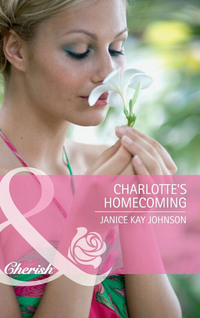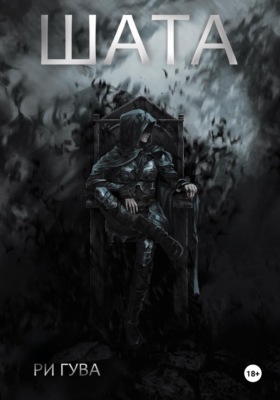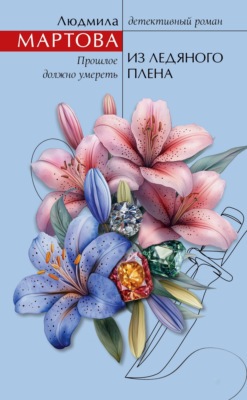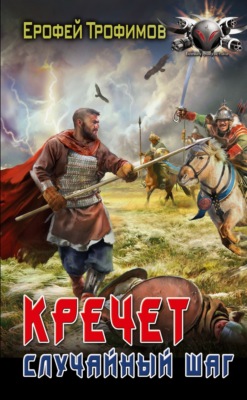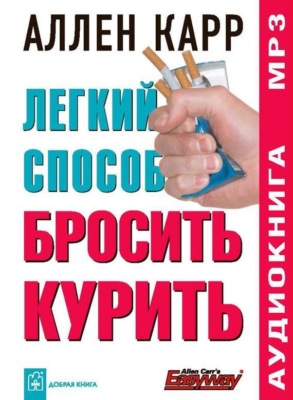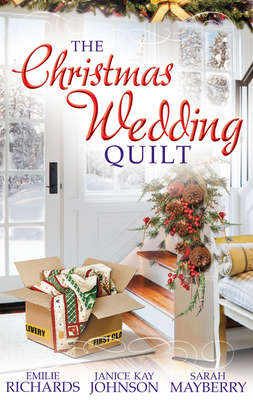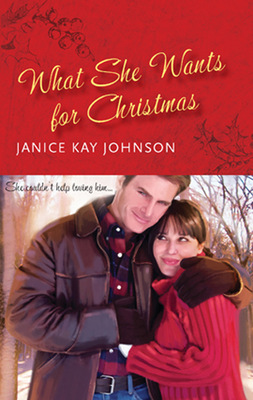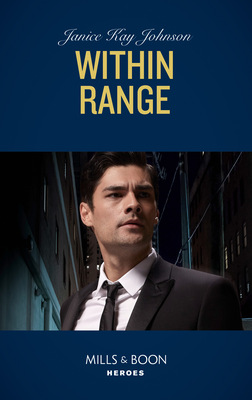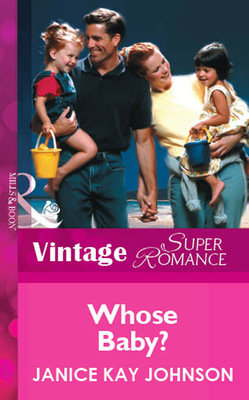Loe raamatut: «The Russell Twins»

“Charlotte, I’m going to have to kiss you.”
Alarm kicked in at Gray’s words, and she backed up, feeling the rustle of leaves. “What?”
His laugh was gone, his eyes intent on her face as one long step brought him close enough to crowd her. “You’re gutsy about everything but me.”
“Maybe I’m just not interested.” She was dismayed to hear her voice emerge too high, betraying panic or desperation. “Did you ever think of that?”
“Hmm.” His gaze dropped to her mouth. “Why don’t we find out?”
She was dizzy, from the heat, from the thick air, from the frantic pace of her pulse. Would it be so terrible to find out what it felt like to be kissed by Gray?
Yes. She was terribly afraid that the answer was yes. But she’d never yet backed away from an accusation of cowardice, and she wouldn’t do it now.
Be honest. You don’t want to back away.
About the Author
The author of more than sixty books for children and adults, JANICE KAY JOHNSON writes novels about love and family—about the way generations connect and the power our earliest experiences have on us throughout life. A former librarian, Janice raised two daughters in a small rural town north of Seattle, Washington. She loves to read and is an active volunteer and board member for Purrfect Pals, a no-kill cat shelter.
Dear Reader,
Here’s one of those subjects fun to debate: are we the products of our childhood, or are we biologically driven to become who we are? Hmm. After raising two daughters of my own and countless litters of kittens (I’m an active volunteer with a no-kill cat shelter), I’ve come firmly down smack dab in the middle on the nature vs. nurture debate. Of course our childhoods influence us profoundly! And yet, there’s simply no question that children—and kittens—are born already predisposed to be timid or adventurous, thoughtful or impetuous, ready to be happy or suspicious of every new face. Twins, now … Especially identical twins … Shouldn’t they not only have the next best thing to an identical upraising while also being predisposed to have the same nature? But does it ever work like that?
Charlotte and Faith are not much alike at all. They share a powerful bond, and yet have spent years estranged because Faith desperately needs to be close while Charlotte, equally desperately, needs to know that she is unique. Only Charlotte’s homecoming will save Faith’s life … and free Charlotte to love.
Just like the lives of any twins, their stories are entangled and neither could be told entirely alone. So look for Faith’s book, Through the Sheriff’s Eyes, next month. Having two whole books to explore the characters and the men they love was great fun, too!
Happy reading,
Janice Kay Johnson
Charlotte’s
Homecoming
Janice Kay Johnson

MILLS & BOON
Before you start reading, why not sign up?
Thank you for downloading this Mills & Boon book. If you want to hear about exclusive discounts, special offers and competitions, sign up to our email newsletter today!
Or simply visit
Mills & Boon emails are completely free to receive and you can unsubscribe at any time via the link in any email we send you.
To my daughters, Sarah and Katie,
both smart, creative, caring young women
who make me proud every day.
CHAPTER ONE
FAITH WAS WAITING IN THE gas station parking lot when the Airporter pulled in. Charlotte saw her right away, leaning against her Blazer, almost as battered as Dad’s pickup, and for the same reason—it was a working vehicle. The fact that Faith—slender, graceful and feminine—would drive something like that suggested to Charlotte that she no longer knew her sister.
And why would she? It had been ten years since they’d graduated from high school and went off to college in different parts of the country, and they’d barely seen each other in all that time.
They both knew it wasn’t home Charlotte had been running from for so long. It was her sister.
For reasons she still didn’t understand, from the moment she was old enough to recognize that she was not unique, she had hated having an identical twin.
She’d rather not be here now, but she hadn’t been able to say no when her sister had called the day before. Faith had sounded … ragged. This was a woman who’d managed to look and sound serene to everyone, including her father and sister, during the two years her husband was emotionally and physically abusing her. It made Charlotte angry to this day that Faith had put up with so much for so long, and that she hadn’t told anyone.
When Charlotte had asked what was wrong, her sister gave a funny, choked laugh. “What isn’t? No, I shouldn’t say that. Dad and I are alive and … not well, but not dying, either.”
“You’re not exactly reassuring me,” she’d said.
“No. Char, the tractor overturned on Dad.”
“Oh, God,” she whispered.
“He’s … pretty badly hurt. Just bones and. I mean, he’ll be okay, he doesn’t have a head injury or major internal damage, but he’s in traction because one leg and his pelvis were just, um, crushed….” Faith’s breath hitched, and she fell silent. Charlotte could hear her breathing. “You know he hasn’t been himself since Mom died.”
Charlotte closed her eyes. “Yes.”
“I’m trying to keep the farm going, but with us in the middle of switching over to the nursery and gift shop and what have you, the only crop we’re raising for sale is corn.”
Charlotte knew that, too, but only because she’d been told. She’d last been home at Christmas, when the fields would have been mere stubble no matter what crop her dad had sowed the spring before. What Faith was telling her, Charlotte understood, was that the gift shop and nursery, both works in progress, were all that brought in any income—except, of course, for Faith’s salary as a kindergarten teacher.
“So I’m off for the summer, but …” Faith’s soft voice stumbled again. “I’m having a really hard time keeping up. And, well, I don’t know if I told you that Rory started coming around a few months ago.”
Rory Hardesty was Faith’s bastard of an ex-husband, a local boy who’d seemed to be the solid young man Faith sought until just after she married him. After the marriage was over, she’d confessed that his temper had begun to simmer within the first few months.
Charlotte tensed. “No. You didn’t tell me.”
“It’s not a big deal, mostly. He didn’t like the divorce.”
Faith was supposed to stay under his thumb and let herself be terrorized into submission.
“But it was final over a year ago.”
“I heard he dated a lot the first few months. I guess he figured he’d make me jealous. Lately, I think he’s drinking pretty heavily.”
“He comes over when he’s drunk?”
“Not most of the time. Mostly he stops by pretending to be friendly. He says he’s sorry for losing his temper a couple of times. He’s expecting … hoping, I guess, that I’ll take him back.”
Faith had been reluctant to tell her the details, but Charlotte knew damn well that Rory had lost his temper a hell of a lot more often than a “couple” of times.
“But lately, I think he has been drinking sometimes when he comes by. He hasn’t exactly threatened me, but …”
Charlotte was gripping the phone so hard her fingers ached. “But …?”
Her sister said, very softly, “I’m scared, Char. Especially with Dad still in the hospital.”
And Faith alone at the farm, with no near neighbors.
“I don’t like to ask … I mean, getting time off work probably isn’t easy, and coming home isn’t exactly what you want to do with your vacation time, but …”
“I was laid off.”
This silence was startled. “You lost your job?”
“Last week. Big surprise, with the state of the economy. OpTech laid off a third of their work force. Including me.” She’d spent the past week brooding. Sleeping in. Gorging on premium chocolate-mint ice cream. Trying not to wonder how long her savings would pay the mortgage on her San Francisco condominium, never mind buy groceries. Software designers made good money, but she hadn’t set as much aside as she should have. Living in the Bay Area was expensive.
More silence. Her sister didn’t have to ask why she hadn’t called to tell her dearly beloved family. Charlotte had been keeping her distance for too many years now.
No—she’d had no choice at all but to come home.
Seeing Faith now, leaning nonchalantly there in jeans and a T-shirt, her blond hair in a loose braid that fell over her breast, caused an uncomfortable ripple in Charlotte’s sense of self. Visits home always did, which was one reason she didn’t make more of them.
When she stepped off the Airporter, Faith’s eyes widened. “Look at you,” she murmured, then smiled shakily and stepped forward. The next moment, the two women were holding each other tight. “I’ve missed you,” Faith said, and Charlotte said, “You should have called sooner,” although truthfully she didn’t know how she would have responded, had she still held a job.
They parted and studied each other. Charlotte knew what her sister saw: short, sleek, dark hair, two earrings in one lobe and three climbing the other, and a face that was too thin and yet still looked disquietingly like her sister’s despite all her effort to make sure it didn’t.
Except for that first “Look at you,” Faith didn’t comment on Charlotte’s appearance. Instead, she helped load her luggage into the truck and then said, “Do you want to stop by the hospital before we go home?”
Charlotte nodded. “Yes, please.”
Her father was asleep when they walked into his hospital room. He was in the first bed, separated by a curtain from the other bed and the window and any hope of sunshine. Her immediate thought was that he had shrunk. Except for the cast and leg slung up in traction, he didn’t seem to have enough bulk underneath the covers. Seeing that, she had a terrible spasm of guilt. He’d aged so much since Mom had died, and she’d hardly noticed.
His eyes opened and she waited while he focused slowly. The dyed hair, new since Christmas, didn’t seem to throw him off. “Char.” He had to clear a scratchy throat. “I’m sorry you had to come home because of this.” He waved toward his leg.
Her eyes blurred, but she smiled for his sake. “I’m sorry you were hurt, but glad to be needed. Did Faith tell you I lost my job?”
He nodded.
“I was feeling sorry for myself. I’m happy to be home.”
“Good,” he said. His hand groped for hers and squeezed hard, still strong. “Good.”
He had to push a button to call the nurse then for his pain meds, and afterward they talked a little but his eyes kept drifting shut. Finally, Charlotte kissed his stubbly cheek and she and Faith left.
Not until they were walking across the parking lot did she say, “He looks … old. And he’s only, what, fifty-seven?”
“Fifty-nine,” her sister corrected her.
Ashamed that she couldn’t even remember how old her own father was, Charlotte said, “Fifty-nine isn’t old.”
“No.” Expression unhappy, Faith unlocked the Blazer. “Since Mom died … I swear Dad has aged four or five years for every one. Maybe, if keeping the farm going hadn’t been such a struggle, too …” She stopped; didn’t have to finish. If he’d had anything to be glad about, instead of having to deal with his wife’s tragic, unnecessary death, his daughter’s ugly divorce, his other daughter’s increasing distance and the prospect of losing the family farm—if, if, if—he might not look so old.
While some of the fault was hers, Charlotte knew, most of it wasn’t. Losing Mom, that was at the heart of her father’s grief, as was the prospect of losing … not just his livelihood, the farm was more than that—it was his heritage, too.
Well, that’s what she’d come home for: to help Faith try to salvage that heritage and livelihood both. She had no idea whether it was possible. She’d start by helping keep her sister safe.
Let that son-of-a-bitch Rory stop by when I’m around, she thought fiercely. Just let him.
IT WAS IMPULSE THAT MADE Gray Van Dusen flick on his signal and make the turn onto the bumpy, hard-packed ground in front of the main barn on the Russell farm. The property held several smaller outbuildings, including a detached garage and a traditional two-story farmhouse painted a pale yellow with white trim. The farm wasn’t riverfront—the Stillaguamish looped lazily through the flat valley on the other side of the highway—but it was good land, enriched by centuries of flooding. A man standing here could see the Cascade Mountain foothills to the east and the forested bluff to the north.
A shiny, red monster pickup had pulled in not far ahead of him, raising a cloud of dust that settled on his Prius.
Damn it, he’d washed his car yesterday with his own two hands.
Agriculture was a dying business here in the Stillaguamish River Valley. Farms were too small to compete with agribusiness and, as crop prices continued to drop, local farmers were selling their land to developers. The Russells were more stubborn than most. Their farm, with the big old barn, several outbuildings and a traditional farmhouse, was advantageously placed on the swoop of highway that led from Interstate 5 into the town of West Fork, Washington. These last couple of years, Don Russell and his daughter Faith had begun a conversion from real farming to a seasonal corn maze, pumpkin farm, antique shop, plant nursery and who the hell knew what else.
Gray suspected that the initiative had come from Faith. Don Russell was a taciturn man who, rumor had it, had changed after the death of his wife four years ago. No one thought he would have done battle against the inevitable had one of his two daughters not been so determined to hang on to the family farm.
Gray didn’t know the truth of any of this; he couldn’t claim to have exchanged more than half a dozen words with Russell. Faith was another matter. He’d taken her out to dinner twice a few months back—once because they were both single and she was pretty, the second time to verify the absence of any spark between them. As far as he was concerned, Faith Russell was a nice woman. He wasn’t opposed to nice, but she carried it a little too far. He didn’t want to have to be on his best manners for the rest of his life.
Her SUV was parked by the house, her father’s pickup by the barn. The newcomer pulled in beside it, and a man in tight jeans and cowboy boots got out and swaggered inside without even turning his head to see who was following him.
Gray parked and went into the barn, too, then waited for his eyes to adjust from the bright sunlight.
The cavernous interior had been carved into aisles and rooms by rough-hewn wood shelving units. Overhead, huge beams and crosspieces held up the roof. A swallow flitted from one beam to another. Perhaps she’d raised a spring brood up there. The doors on the far side of the barn were wide open, letting sunlight stream in and leading to the outside nursery. To Gray’s right, half of the barn was devoted to gardening implements, seeds, bagged manure and garden art. To his left, the other half held an organic produce section, and beyond that the antiques. In the center of it all stood a broad counter where homemade jams and jellies were displayed, as well as an old-fashioned cash register.
The only two people in here, besides Gray, were the woman behind the counter and the guy who’d planted himself in front of it, legs apart and his thumbs hooked in his jeans’ pockets.
“What in the hell have you done with yourself?” he asked explosively.
The woman—Faith … no, not Faith, Gray realized in surprise—gave the guy a look, a flash of vivid blue eyes.
“Had a makeover,” she said, not smiling.
“You look like a whore,” the jackass sneered. “What’re you trying to prove, punchin’ holes in yourself?”
“My reasons had nothing to do with you.” She leaned forward, her voice low, almost a hiss. “Rory, wife beaters aren’t welcome on our land. Consider this a warning. I’ll call the cops if you trespass again. Clear?”
From the shadows near the entrance, Gray saw the shoulders bunch and heard a string of obscenities, followed by single name, spat out with venom. “Char.” A shrug. “Figures. You’ll be gone soon enough. That’s what you do, isn’t it?” He leaned forward. “This is between Faith and me. Stay out of it.”
“Nope.” She reached for the telephone that lay on the counter. “Get out of here, Rory. I mean it.”
The jackass started forward, not back. Gray cleared his throat. Aware he was imposing enough to give the SOB pause, he strolled farther into the barn. Rory spun around, glared at him, snarled, “I’ll be back,” and strode toward the open door, his shoulder, not so accidentally, bumping Gray’s on the way.
“Last warning,” she called after him.
He flipped her off without looking back, then disappeared. The angry roar of the big engine was followed by a swirl of dust that wafted even inside the barn.
“Nice guy,” Gray remarked.
She gave a short, sharp laugh and took her hand away from the phone. “Oh, yeah. And getting nicer all the time.”
He raised his brows. Wife beater? Had Faith been married to that bastard?
She ignored his open curiosity and said conventionally, “May I help you?”
“Faith mentioned she had a sister.”
She hadn’t said how startlingly similar that sister looked. Both women were taller than average—perhaps five foot seven or eight—and willowy. This sister was thinner yet, though, as if she lived on coffee and nerves but very little food. Her skin was very white, her cheekbones prominent, her nose long and her eyes the blue of a Siamese cat’s. Bluer than Faith’s, he thought, but perhaps the color was more vivid because of the fire in these eyes. Faith’s were the blue of a placid pond rather than the startling blue of the twilight sky above the pyrotechnics of the setting sun.
“Should she have mentioned you?” Faith’s sister asked.
He smiled. “Nothing to mention. We’re acquainted.” He held out his hand. “Gray Van Dusen.”
She shook, even as she seemed to be sampling his name. “Gray … Not Graham?”
“Graham,” he conceded, letting her hand go with some reluctance, “although I answer to Gray.” Did she have any idea how much tension and vitality she’d conveyed, just with that simple grip of her hand?
“The new mayor of West Fork.”
“That would be me. Also a partner in Van Dusen and Cullen, Architects.”
“Part-time mayor, part-time architect.” She sounded amused.
“More like full-time mayor, full-time architect,” Gray admitted ruefully. “There’s not enough of me to go around.”
“And yet you’re here to shop for a new shrub or a hundred-year-old dining-room table or, hmm, some blackberry jam?” With the same slender, pale hand he’d enfolded earlier in his own, she lifted a jar from the display and held it out in offering.
Faith’s hands did not look like that. They were just as slender and graceful, but also tanned, calloused and nicked.
“Thank you, but no. I actually stopped by to tell Faith that I’m sorry to hear about the accident. And, ah, to talk about traffic.”
Her eyes widened. “Traffic? In West Fork?”
“You’d be surprised.”
“Maybe not. Faith did say that West Fork is becoming a bedroom community for the east side.” She set down the jam jar. “I’m Charlotte. As you can tell, Faith’s sister.”
He wondered at the wryness in her tone. Had she, once upon a time, played second fiddle to Faith? He simply couldn’t imagine, even if Charlotte was the younger.
“He called you Char. Do you go by that?”
“Mostly with family. Rory is Faith’s ex, in case you hadn’t gathered as much.”
“Seems like a real son of a bitch,” Gray murmured.
Her voice hardened. “That’s how I think of him. Um … this conversation about traffic. Faith’s up at the house. Shall I call her?”
He shook his head. “We can have it another time. I stopped on impulse.” Following another impulse, he grabbed a different jar of jam. “I prefer blueberry.”
Charlotte Russell smiled at him, and he was jolted down to the soles of his feet. “My first chance to use the cash register.”
This woman was a mass of contradictions. That smile, a little sassy but essentially sweet, didn’t go with the ice-cold anger she’d used to deal with Rory, the wife beater. If he hadn’t been intrigued before, she had him now.
Almost at random, Gray asked, “Do you know how?”
“I’m an expert. I worked at Tastee’s while I was in high school.”
Like everyone in West Fork, he drove up to the outside window of Tastee’s for a burger and fries now and again, or went in for an ice-cream cone. Now amused, he said, “You wore that striped top and the stupid little white hat?”
She rolled her eyes. “I can’t tell you how much I hated that hat. Still, it was a job. Faith,” she told him, “picked strawberries summers. I wouldn’t have been caught dead doing that.”
He took out his wallet and paid for the jam, then nodded toward the bright outline of the door. “Walk me out?”
“Why not.” She came around the counter, and he saw that below a filmy white, short-sleeved blouse, she wore an aqua-colored, airy, linen skirt that flowed over her hips and thighs and stopped midcalf. Below that, flip-flops bared red-painted toenails. Seeing his gaze, she waved vaguely at her clothes and said, “I flew up here this morning. Haven’t had time to change into jeans.”
“From where?”
“San Francisco.”
“Are you younger, or older?”
The blue eyes flared. “You can’t tell?”
He stopped just outside and faced her. “Tell what?”
“We’re twins.” She was trying to wipe all expression out of her voice but didn’t quite succeed. “Identical twins.”
“Are you?” Assessing her again, Gray automatically put aside the pang he felt whenever he heard the word twin. “I knew right away that you weren’t Faith.”
“Gee. Black hair? Earrings?” She tugged mockingly at one lobe.
He shrugged. “Rory couldn’t.”
“That’s because he’s too self-centered to look very hard at anyone but himself.”
Gray suppressed a smile. “You’re thinner.”
She glanced down at herself. “I guess so. Faith has some muscle tone—she works hard here. I’m just bony. Despite the chocolate-mint ice cream.”
He let that pass. “What’s inside affects how we look. You and Faith aren’t that much alike, are you?”
Charlotte stared at him, her eyes curiously vulnerable. He had the sense that he’d stunned her.
“No. We could … pass for each other, when we were younger, but inside …” She sighed. “Faith has a gift for serenity that I don’t.”
“You seem … stronger,” he chose to say, instead of telling her she had a fire her sister lacked.
But she was shaking her head before he finished. “No. She was here for Mom and Dad, she withstood an awful marriage, she’s fighting to save the farm—and, so far, winning. Me, I had a job and a condo and no one else to worry about. In comparison to me, Faith is an Amazon.”
He picked the most important three words out of this speech. “No one else?”
She flushed, and he smiled. Good, he thought.
Then he wondered at her choice of verb tense. Had implied that she no longer had a job, or perhaps the condo. Or both.
“How long do you plan to be here?” he asked.
“I don’t know. Depends how quick Dad recovers, how much of a nuisance Rory turns out to be.”
Gray frowned. “Has Faith called the police or tried to get a protection order?”
Charlotte shook her head. “I don’t think so. We’ll talk about it.” She eyed him. “Is this traffic thing something I should know about?”
“Depends how involved you get with the farm. I’m just worrying about your customers pulling out right onto the highway, especially on this curve here. Somebody misjudges distance or speed, and we’ll have multiple fatalities.”
“What do you suggest?” she shot back. “We sell the farm? You know a housing development will replace it. Then you’ll have that traffic to contend with.”
“Developers,” he pointed out, “are required to mitigate traffic problems. Maybe pay for a left-turn lane, and to add one to give cars pulling out room to accelerate.”
“We can’t afford anything like that.” She stared him down. “Why don’t you go to the state and ask for a lower speed limit, or a center lane?”
“Because that would take years, expensive studies and bureaucratic obstacles beyond either of our imaginations. Meantime, people are going to die.”
“You don’t want us running a retail business right off the highway.”
“I’m not happy about it.” Or about alienating her before he’d even had a chance to ask her to dinner. “I’ve got a couple of ideas, though.”
She gave her head a quick shake. “You’ll want to talk to Faith, then. With Dad so woozy, she’s the decision-maker. I’m here to be a minion.”
His mouth quirked. “A minion?”
“Yeah, you know. A helper. A floor-mopper, cashier. I suspect she’ll have me making jam and driving the tractor before I know it. A nurse, too, I suppose, when Dad comes home.” She made a face at that. “Although Faith would be much better at nursing than I would.”
“Because of her gift for serenity.”
“And my impatience with my fellow human beings.”
“What do you do for a living?” he asked.
“Design software.” She pressed her lips together, opened them as if to say something else, then decided not to.
A solitary occupation. He wondered what kind of software she designed. Word processing? Financial? Something arcane that made computers run faster or repelled viruses? Games?
Probably not games.
He glanced over his shoulder and saw that a van was pulling in. A family would shortly be spilling out of it.
“Nice to meet you, Charlotte Russell,” he said with a nod. “I’ll see you again soon.”
For the first time, her expression seemed to turn shy. Her tone, in contrast, was flip. “Like I told you, Faith’s the one you want to talk to.”
“Oh, I don’t know,” he said. “I think I’d enjoy talking to you.”
She gave him a look that, if he wasn’t mistaken, held alarm.
The van came to a stop. When the side door slid open, at least four kids scrambled out, as well as two women from the front seats.
She said only, “I’ll tell Faith you were here,” and greeted the customers, leading the way into the barn.
Not until Gray was alone did he say softly, “Faith’s not the one I want.”
Want, he thought, was a mild word for what he felt for a woman he’d barely met. One who was prickly in personality and too skinny. He’d liked how fierce she had been in her sister’s defense, but her smile was what had really gotten to him. Her smile, and the vulnerability he’d seen in her eyes.
But he’d seen plenty of beautiful smiles, and had met his share of women who looked as if they needed somebody to take care of them. So why, this time, did he feel as if he’d been sucker punched?
Frowning, he got in his car. By the time he backed out, he was already thinking about how soon he could stop by the Russell farm again.
Tasuta katkend on lõppenud.
